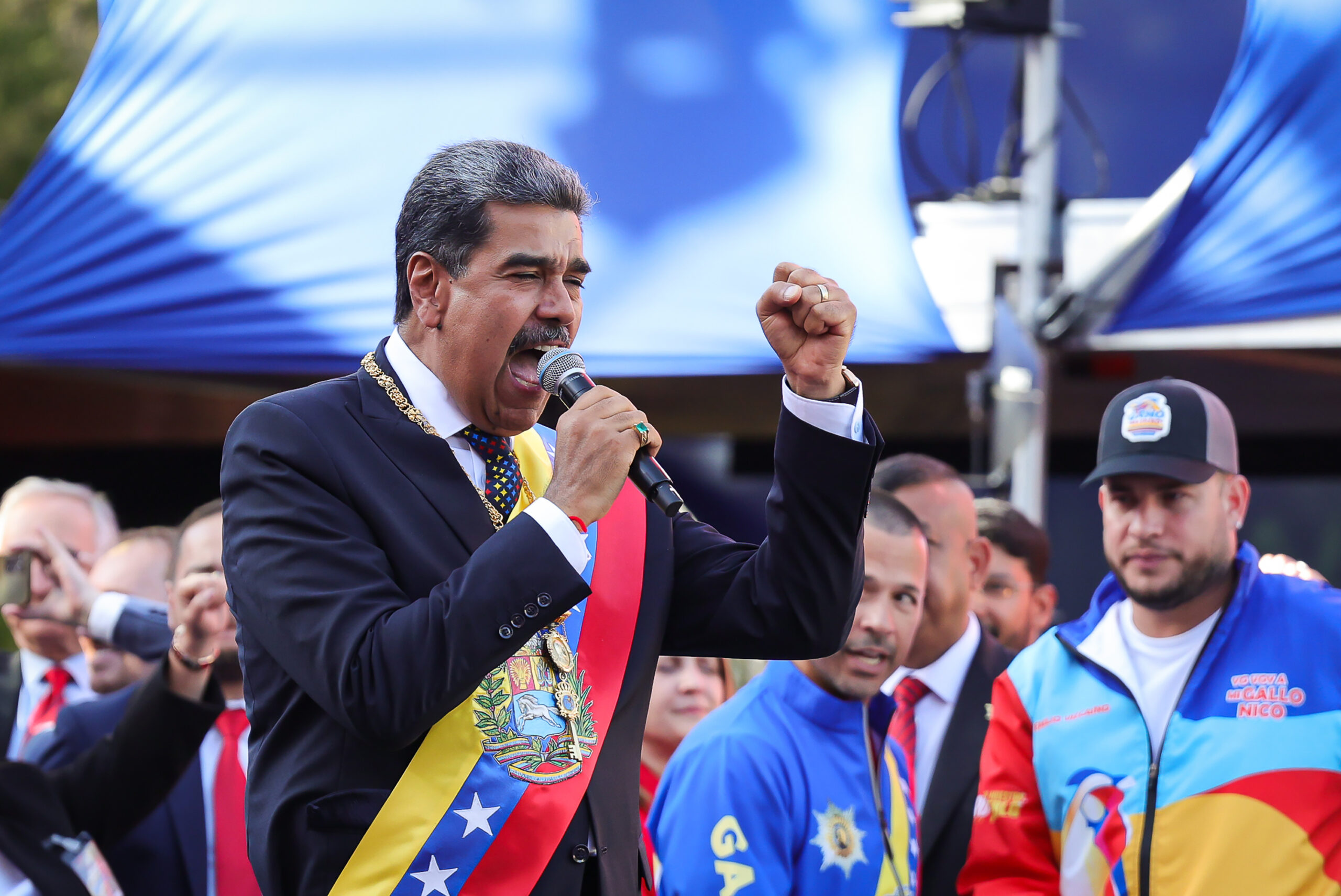- January 15, 2025
Shame on Mexico, Brazil and Colombia. They validated Venezuela’s dictatorship

Andres Oppenheimer
The left-of-center leaders of Mexico, Brazil and Colombia have just made a mockery of their claims to support democracy. Ignoring a diplomatic boycott by most Latin American democracies, they sent official envoys to the sham inauguration on Friday of Venezuelan dictator Nicolás Maduro for a new six-year term in office.
In other words, they gave an official blessing to Maduro’s fraudulent power grab, even while some of them timidly recognized that Venezuela’s July 28 election was bogus.
Voting tallies made public by the opposition and certified as authentic by most experts show that opposition leader Edmundo Gonzalez Urrutia won the elections with 67% of the vote, against Maduro’s 30%. But the Venezuelan autocrat proclaimed himself the winner anyway, without ever showing official voting records.
Granted, the presidents of Mexico, Brazil and Colombia didn’t fly to Venezuela for the inauguration ceremony, nor did they send cabinet-level delegations. Instead, they ordered their respective ambassadors to be at the ceremony, which still amounted to an official recognition of Maduro’s installation.
Among the few visiting dignitaries attending Maduro’s inauguration were the dictators of Cuba and Nicaragua, who sat in the front row at the swearing-in ceremony.
To their credit, Argentina, Chile, Peru, Paraguay, Ecuador, Panama and several other countries condemned Maduro’s fraudulent re-election and did not send any representatives to his inauguration. The United States, Argentina, Uruguay, Ecuador, Perú, Panamá and Costa Rica have recognized Gonzalez Urrutia as Venezuela’s legitimate president.
Mexico’s President Claudia Sheinbaum, who recently claimed that Mexico “is the most democratic country,” announced shortly before Maduro’s inauguration that she had instructed Mexico’s ambassador in Venezuela to attend the event. She argued that Mexico’s constitution calls for non-intervention in other countries’ internal affairs.
That’s a pathetic excuse, or at the very least a very misleading interpretation of Mexico’s Constitution.
Article 89 of Mexico’s charter calls on the president to follow a foreign policy guided by both the principle of “non-intervention” in other countries’ affairs and “the respect, protection and promotion of human rights.” Sheinbaum chose to focus on the first guideline, and to ignore the second one.
In Venezuela’s case, Maduro not only shamelessly stole the most recent elections, but has since unleashed a massive wave of repression.
In the months following the July 28 elections, Maduro’s security forces caused “at least 25 deaths, more than 2,000 arbitrary detentions, forced disappearances and other grave human rights violations,” according to a Jan. 7 report by the Organization of American States’ Inter-American Human Rights Commission.
Brazil’s President Luiz Inacio “Lula” da Silva has voiced doubts about Venezuela’s election results, saying that “Maduro owes explanations” about them. But the Brazilian president nevertheless sent his ambassador to attend the inauguration ceremony claiming that Venezuela’s problems “are for the Venezuelan people to resolve.”
In a similar display of political inconsistency, Colombia’s President Gustavo Petro admitted in his social media account that Venezuela’s election results were “not free,” but sent his ambassador anyway to Maduro’s swearing-in ceremony.
Asked about Petro’s wishy-washy stance, Venezuela’s most important opposition leader, Maria Corina Machado, told Colombia’s NTN24 network that “you can’t be in good standing with God and with the devil”— the Spanish-language equivalent of “you can’t have your cake and eat it, too.”
Machado is right. Recognizing Maduro as Venezuela’s legitimate leader is not only a moral blunder, but also a serious economic miscalculation by the leaders of Mexico, Brazil and Colombia.
These countries are likely to be among the most affected by the massive migration from Venezuela that is likely to follow Maduro’s latest power grab, as Venezuela’s economic crisis will probably worsen amid new U.S. and European Union sanctions.
In a recent interview, Machado told me that if Maduro was inaugurated for a new term, “three, four, five, six million more” Venezuelans would be leaving the country. She may not have exaggerated; nearly eight million have already left since Maduro took office in 2013, according to United Nations numbers, and polls show that many Venezuelans are planning to leave.
Where are they likely to go? With President-elect Trump vowing to close the U.S. border to all undocumented migrants, including Venezuelans, they will probably head for neighboring Colombia and Brazil, and some to Mexico. And Venezuelan criminal organizations such as the Tren de Aragua gang are likely to expand across Latin America.
In a nutshell, the presidents of Mexico, Brazil and Colombia are shooting themselves in the foot. They should follow the steps of Chile’s leftist president Gabriel Boric, who said Jan. 9 that “as a leftist, I’m saying that Maduro’s government is a dictatorship.”
In addition, they should recognize Gonzalez Urrutia as the legitimate president of Venezuela, and prioritize democratic principles and regional stability over outdated ideologies.
Otherwise, their claims to support democracy sound like a joke, and the economic consequences of Venezuela’s collapse into a full-blown narco-dictatorship will hurt them — and countries across the Americas — badly.

